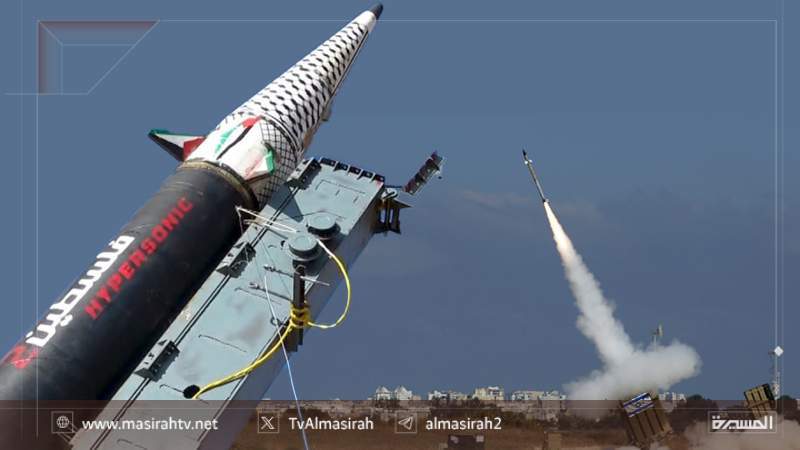Yemeni Missiles Break Through US THAAD and Israeli Arrow Defenses: A New Era of Military Power

Yemen: This is an important question tied to a new reality: What does it mean that Yemen’s ballistic missiles have successfully bypassed the world’s most advanced air defense systems — the Israeli “Arrow” (Hetz) and the American “THAAD”? Could Yemen become a future hub for advanced military industries?
In October of last year, the United States deployed its most advanced THAAD defense system in the occupied Palestinian territories. The objective was to counter any missile threats targeting the Israeli occupation entity.
However, the system failed on multiple occasions, as did Israel’s newest defense system, the Arrow, despite its complexities. Yemeni missile technology managed to surpass both these systems and reach its targets.
To understand the gravity, recall how Beijing and Moscow objected in February 2017 to the deployment of THAAD in South Korea, recognizing its significance as one of the world’s most advanced defense systems. THAAD had undergone numerous tests to guarantee its effectiveness, with 18 tests conducted between 2006 and 2019, 14 of which were successful before operational deployment.
THAAD is designed to intercept short, medium, and long-range ballistic missiles, being the only US system capable of intercepting targets both inside and outside the atmosphere. Countries like the UAE, South Korea, Israel, and Saudi Arabia adopted it for its supposed high efficiency.
Compared to the Patriot system, THAAD offers broader coverage and works integratively with Aegis and other missile defense layers, providing an additional high-altitude defense layer. Its interceptor missile, equipped with advanced sensors and a hit-to-kill mechanism, is designed for high-precision maneuvers without the use of explosives, achieving speeds of 10,000 km/h.
Despite these capabilities, THAAD failed twice within days to intercept two Yemeni ballistic missiles. This marks an official declaration of the system's failure, brought to Israel to compensate for its multi-layered defense systems’ repeated failures against missiles from Yemen and Iran.
Such failures inevitably shake US allies' confidence in THAAD, including Arab countries like Saudi Arabia and the UAE, who have invested heavily in these systems.
The Arrow (Hetz) System
For two consecutive times, Israeli officials blamed THAAD for failing to intercept Yemeni hypersonic missiles, while boasting about the efficiency of their Arrow (Hetz 3) system.
Yet, reality shows that all Israeli defense systems have failed repeatedly in intercepting missiles targeting the occupation entity — whether during "True Promise 1" or "True Promise 2" operations, or against Yemeni missiles whose impacts Israel tried to conceal.
Since August 2008, the US and Israel have jointly developed newer versions of the Arrow system, with Hebrew media claiming a 90-99 percent kill rate. However, the recent Israeli aggression on Gaza and subsequent missile barrages revealed that these defense systems are far from the hyped capabilities.
The Arrow system employs the latest Super Green Pine radar, with detection ranges up to 800–900 km, boasting advanced anti-jamming capabilities. Its control and command system, Golden Citron, can allegedly handle 14 simultaneous interceptions, integrating with Patriot systems. The missile itself is equipped with guided propulsion for enhanced maneuverability and hit-to-kill precision.
Arrow Radar Operations
The Arrow’s radar sends signals into space to detect incoming targets, covering vast areas from low earth orbit (200–2,000 km) to medium earth orbit (2,000–36,000 km), even tracking objects in outer space. This system uses advanced technologies to detect and intercept ballistic missiles, often described as one of the most effective defense systems globally.
Yet, despite such sophisticated American and Israeli technology, Yemen’s ballistic missiles have managed to penetrate these complex, integrated systems.
This success has embarrassed Washington before Israel, its strategic ally, and before nations relying on the THAAD system, shaking the credibility of American military industry narratives.
For instance, the UAE signed a $3.48 billion deal with the US in 2014 to acquire THAAD systems, receiving two batteries by January 2022. Saudi Arabia’s 2017 agreement to buy seven THAAD batteries, estimated at $15 billion, appears stalled due to American considerations. THAAD was also deployed to Saudi Arabia in 2019 following drone and missile attacks on oil facilities, only to be withdrawn by mid-2021.
This year, a Saudi team completed training in the US on the THAAD system — ironically coinciding with public admissions from within Israel of the system’s failure against Yemen’s advanced missiles.
Adding to this is the enormous operational cost, with each THAAD missile costing up to $3 million. The inability to intercept Yemen’s hypersonic missile signals a growing impact on US military industries, much like the declining relevance of MQ-9 Reaper drones after repeated failures in Yemen’s skies and waters.
Yemen’s Advanced Missile Tactics
The success of Yemeni missiles in bypassing both American and Israeli defense systems indicates significant advancements in Yemen’s missile technology, cornering the so-called “world-leading” American and Israeli defense industries. This is especially notable given Yemen's perception as having an emerging missile program.
Yemenis have demonstrated high tactical skill in exploiting defense system weaknesses, using multi-stage and highly maneuverable missiles with speeds exceeding Mach 5, making interception nearly impossible. These missiles are designed with stealth technologies to evade radar detection, incorporating agile designs for evasive maneuvers.
Yemeni missiles appear to be developed through meticulous analysis of US and Israeli defense systems, specifically identifying weaknesses like delayed response times and tracking limitations. This has allowed Yemen to exploit vulnerabilities effectively.
The Israeli newspaper Calcalist summarized the situation aptly: "We’ve witnessed multiple failures in intercepting Yemeni missiles. While no air defense system offers absolute protection, the missiles targeting us are not ordinary."
Translated by Almasirah English website
-
06:40
UN Spokesman: Israeli evacuation orders displaced around 30,000 people in Gaza in a single day
06:40
Jenin: Israeli enemy forces force residents out of a besieged building and detain a young man
06:39
Fox News: Trump and White House officials met Saudi Defense Minister Khalid bin Salman yesterday
06:38
Gaza: Over 15 killed in recent Israeli strike on tents in Al-Mawasi, Khan Younis
06:38
Channel 12: Most airlines won’t resume flights soon; airspace safety still uncertain





